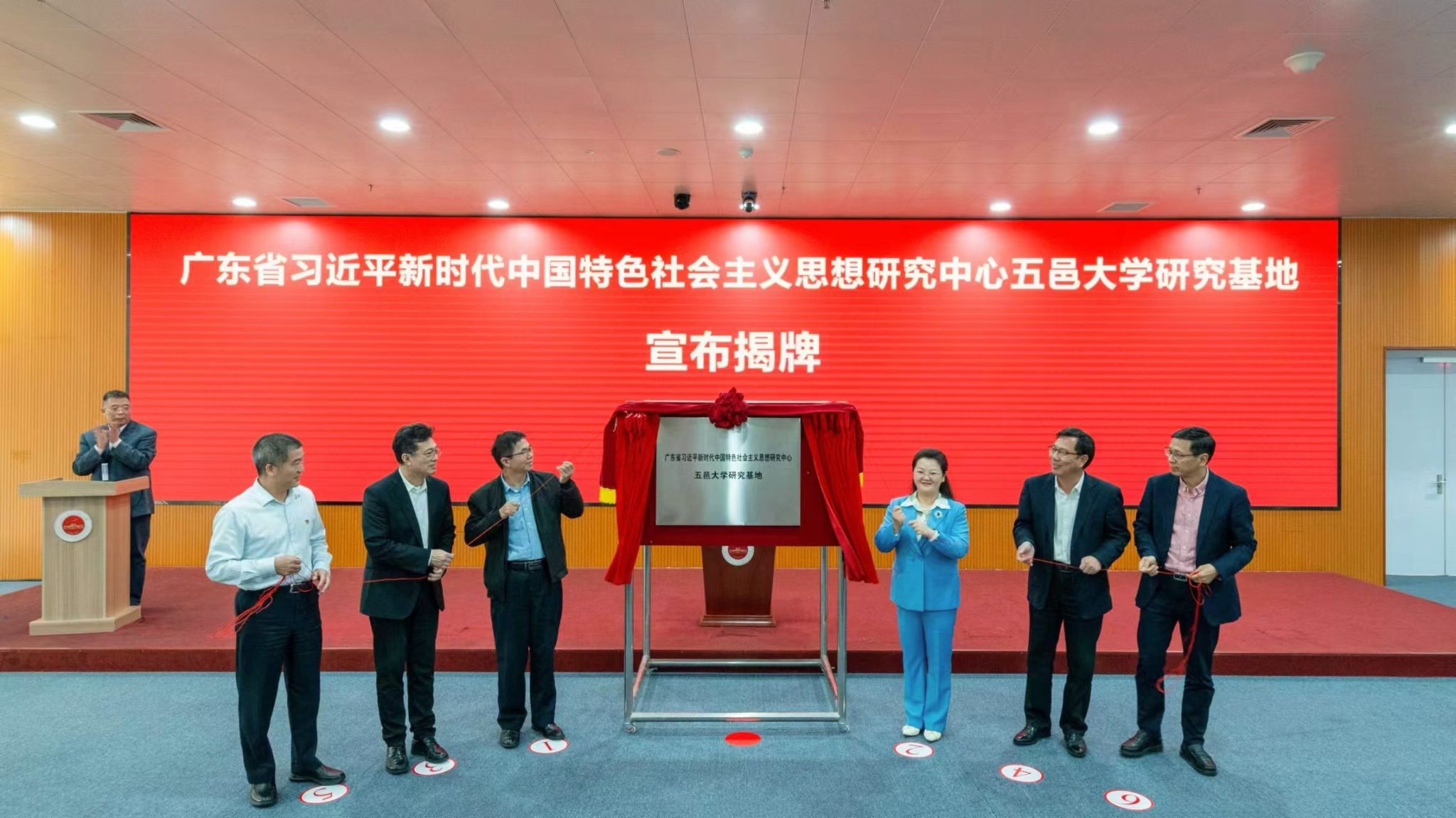The School of Marxism at Wuyi University mainly undertakes the education and research of ideological and political theory courses, as well as the construction of Marxist theory disciplines throughout the university.
The School of Marxism at Wuyi University, formerly known as the Department of Social Sciences and Arts at Wuyi University, was established in 1986. It is one of the earliest secondary teaching units directly under the party and government of Wuyi University. With the implementation of the "05 Plan" for ideological and political courses in national universities, the school established a teaching department for ideological and political theory courses in December 2005. In January 2010, Wuyi University implemented a college system and renamed itself as the Department of Ideological and Political Theory Teaching. In September 2015, Wuyi University established the School of Marxism.
The School of Marxism currently has 51 faculty members, including 18 associate professors and 32 teachers with doctoral degrees, accounting for 66.67% of the total. The college has 5 scientific research teams, including the research team on the integration of ideological and political education in Universities, secondary and primary schools, the research team on the localization of Marxism in China, the research team on the history of the Communist Party of China, the research team on Chinese path to modernization, and the research team on the history and culture of the hometown of overseas Chinese. The college has 3 high-quality courses of ideological and political theory in Guangdong colleges and universities, 4 high-quality courses at the school level. In 2023, the college was approved as the first-class course of "ideology, morality and rule of law" in Guangdong Province, and has built a number of off-campus social practice teaching bases for college students, such as Wuyi Overseas Chinese Museum.
The first level discipline of "Marxist Theory" is a key discipline at Wuyi University, and the college currently has one Master's degree program in Education - Discipline Teaching (Ideological and Political). The college has six teaching and research sections, including Introduction to Xi Jinping Thought on Socialism with Chinese Characteristics for a New Era, Introduction to Mao Zedong Thought and the Theoretical System of Socialism with Chinese Characteristics, Outline of Modern Chinese History, Basic Principles of Marxism, Ideological and Moral Education and Rule of Law, and Situation and Policy; Research platforms such as the Wuyi University Research Base of the Xi Jinping Thought on Socialism with Chinese Characteristics for a New Era Research Center in Guangdong Province,Wuyi University Institute for Strengthening the Awareness of the Chinese National Community, the leading university of the Guangdong Province's ideological and political course integration community for primary, secondary and tertiary schools, the Guangdong Province's ideological and political course regional collaborative innovation center (Zhuzhongjiang), the Wuyi University Research Center for the integration of ideological and political courses in primary, secondary and tertiary schools, the Jiangmen Youth Career Research and Development Center, the Wuyi University Chen Rongjie Research Center, the Marxism and China Modernization Research Institute, the Jiangmen City Theory Publicity Demonstration Site, and the Pearl River Delta Social Situation Public Opinion Research Center.



The party committee of the school attaches great importance to the teaching of ideological and political theory courses and subject construction, and the secretary and principal personally teach the first class. In recent years, the faculty of the college has undertaken research work on one major commissioned project of the National Social Science Fund, presided over 15 provincial-level teaching research and scientific research projects such as the National Social Science Fund research project, the Provincial Social Science Fund and the Provincial Teaching Reform Project, 25 research projects at or above the municipal level, multiple university level research projects, and 6 horizontal research projects represented by the "Jiangmen Civilized City Index Evaluation". They have published nearly 100 papers in journals and mainstream media, including 15 in core journals, and have won awards such as the "Third Prize" for excellent social science achievement papers in the province, the "Third Prize" for philosophy and social science achievements in Jiangmen, and the "Third Prize" for excellent moral education papers in universities.